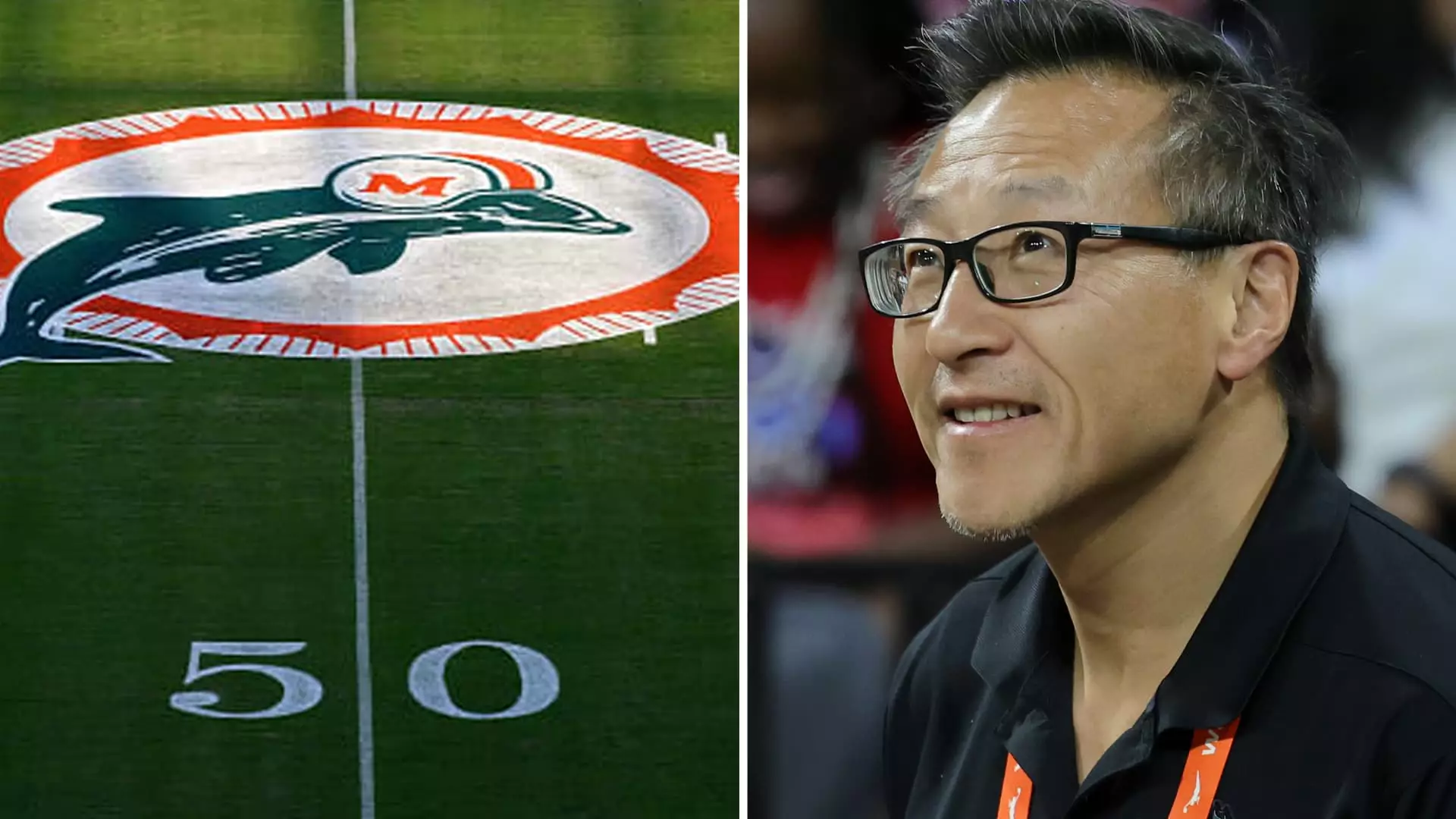The landscape of sports ownership is evolving, and the recent negotiations between the Miami Dolphins and Ares Management, alongside billionaire Joe Tsai, illustrate a significant shift in strategy among professional sports teams. With an increasing trend towards leveraging private equity to expand ownership portfolios, this situation offers a unique glimpse into the dynamics of modern sports finance, the motivations of stakeholders, and the potential future of team management.
The Miami Dolphins, valued at an impressive $7.1 billion—excluding the pivotal Hard Rock Stadium—are in advanced talks for a minority stake sale. This sale includes operational rights for not only the stadium but also marquee events like the Miami Grand Prix and the Miami Open. Valued at approximately $8.1 billion, the stakes of this deal go beyond mere ownership; they encapsulate strategic management of associated assets that provide diverse revenue streams. Ares Management is expected to acquire a 10% stake in the team, while Tsai is negotiating a 3% share. Such negotiations signal a willingness among current owners to embrace external investment to bolster financial sustainability and expand operational capacity.
What sets this proposal apart is its landmark nature in the NFL. Under the new finance rules approved in August, this move represents the first engagement of private equity in NFL team ownership, which could alter the traditional framework surrounding sports franchises. By allowing investments from entities like Ares, which manages assets exceeding $450 billion, the NFL is opening the door to a new wave of potential investment that could redefine team economics.
Tsai is not new to the realm of sports ownership, showcasing a growing trend among affluent investors who recognize the value of diversifying their portfolios into multiple franchises across different sports. Owning the Brooklyn Nets and the New York Liberty, and co-owning MLS’s Los Angeles FC and Premier Lacrosse teams, Tsai has established a robust sports empire. This mirrors a wider trend where billionaires are investing across various leagues and sports, driven by lucrative opportunities surrounding sponsorships, merchandise, and venue operations.
The financial logic behind this trend is compelling. By diversifying investments across multiple sports franchises, owners can mitigate risks and create synergistic opportunities. Managing multiple teams also allows owners to maximize their negotiating power in broadcasting rights and marketing deals, ultimately leading to increased revenue. The Dolphins’ financial achievements—recording $673 million in revenue in 2023—underscore the lucrative opportunities available within the professional sports framework, especially when operational rights to high-profile events are factored into the equation.
Historically, the NFL has maintained a protectionist stance against private equity until very recently. However, the league’s approval of private equity investments illustrates the increasing difficulty of sustaining valuations and attracting buyers in a competitive marketplace. Owner Stephen Ross’s rejection of a record $10 billion offer for the Dolphins reflects a shift toward securing long-term familial ownership amidst a backdrop of evolving financial strategies in sports management.
It is important to note, though, that while private equity can infuse teams with capital, it poses potential challenges. Stakeholders must navigate the fine line between enhancing operational leverage and maintaining the spirit and culture of the team. The involvement of external investors can lead to stark transformations in team management and business practices, affecting everything from player contracts to fan engagement strategies. Balancing these investments while preserving the identity of franchises is crucial in today’s market.
The Miami Dolphins’ situation exemplifies not only a strategic pivot for one of the NFL’s prominent teams but also the broader transformations in the sports landscape. As private equity plays an increasingly significant role in professional sports ownership, team leaders must remain vigilant in balancing partnership benefits with the core values that define their franchises. The conversation surrounding this potential deal reflects a pivotal moment in sports finance, wherein the implications will resonate beyond the NFL, influencing all levels of professional sports potentially for generations to come.

